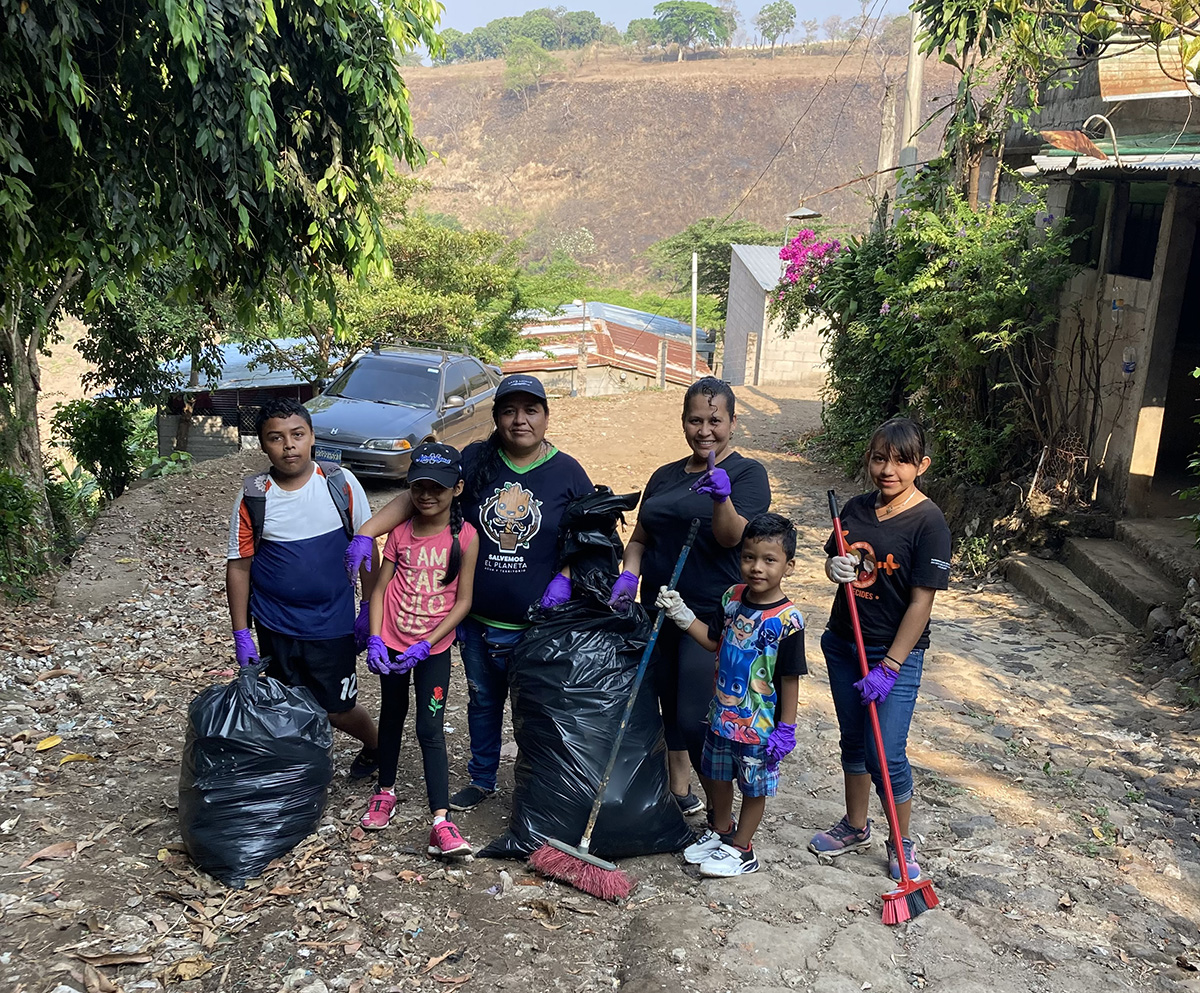
One of the crews on neighborhood cleanup day in El Zaite
Let’s talk trash. Not trash-talk, mind you, but talk about garbage.
There are many challenges to living in El Salvador. There is a lack of basic necessities, including clean water, quality education, job opportunity and health care. The country’s prevalent gang violence has led to the recent state of exception during which more than 65,000 people have been arrested and imprisoned on “suspicion of gang affiliation.” It is estimated that at least 10% of those arrested are innocent of any crime, yet all remain in jail with no legal representation.
But today I’m thinking about trash. Compared to the challenges I just mentioned, it may seem a small problem, but it really is a symptom of something much bigger — poverty and the environment. And I think about it a lot because my husband Bob and I see a lot of it.
We work in the El Zaite community in Zaragoza, El Salvador. And although we are witnesses to the trash problem there, we have noticed it throughout our travels, especially in the poorer neighborhoods. The garbage includes everything from clothing and household goods to car parts, oil containers, medical supplies, and of course, plastic food wrappers and drink containers. It clogs ditches, creates erosion, pollutes water runoff and spreads disease. Polluted runoff is one of the greatest threats to clean water.
When we first started commuting into the valley of El Zaite, I was saddened and quick to judge. Why would someone throw trash on the ground in front of their own home when there is garbage pickup on the main road? In my short time here, I have realized that the answer to that question and the solution to the problem are complicated and are born from poverty.
Despite living in central Zaragoza, a mere one mile from El Zaite, the streets surrounding the town center and our neighborhood are cleaner. Why? Because the community pays a fee to have town employees pick trash off the street daily and garbage trucks come three times a week.
There is a kind, elderly gentleman on the path into El Zaite who burns his trash in front of his house. This is part custom and part practical; it is probably something he has always done, and it is easier than carrying his trash down a steep slope for trash pickup.
I also realized that although most members of the community carry their trash in large plastic bags to designated pickup locations, the numerous hungry dogs roaming the neighborhood rip open the bags looking for food, spreading garbage throughout the road.
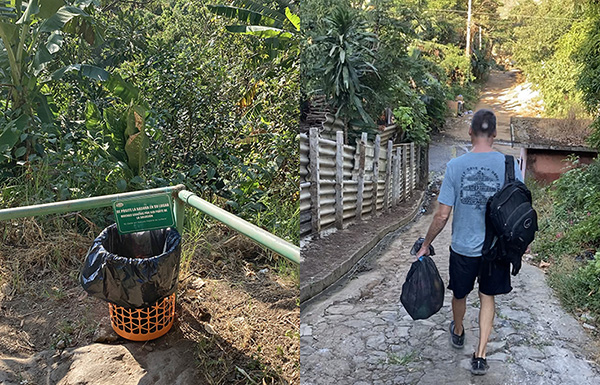
Left: Bob has placed a trash can on the pathway down to El Zaite. Right: Every few days, he takes the trash to where it can get picked up by the trash collectors.
My problem-solving husband was determined to try something. He decided he would buy a trash can and place it on the pathway leading into the valley. In a way, he “adopted” a small stretch of the path in hopes of keeping it clean. Sounds simple.
So one day, six months ago, he placed a small trash can on the path and then continued down into the center for a meeting with some of the local teens. One of the teens laughed at him, telling him the trash receptible would be stolen within the week, despite his wiring it to a handrail. They actually made a bet to see how long it would last there.
We started using the trash can and noticed others were also. One day we even saw a large mattress that someone placed next to it for disposal! That meant that Bob had to transport the mattress down the path to a place where it would be picked up by the trash collectors, along with the filled bags he brings down every few days. But people were becoming aware of the trash can — and using it.
Carlos, our boss at El Patronato, has posted signs around the community and even had a local artist paint messages on electric poles throughout the neighborhood, reminding people to discard trash in the proper place. Every few months, El Patronato hosts a neighborhood clean-up day, where members of this amazing community, young and old, come together to pick up trash. The teens in Tú Decides, the students in the Refuerzo afterschool program, the women in the Collectivo de Mujeres, the elders in the Adultos Mayores group, and the pequenos in the kinder and their families are all participating.
One small step to finding a solution is knowing that improvement is possible.
So we’ve been talking trash, but what we are really talking about is poverty, community and hope. Living here, I have learned not to judge others on the way they live, but to be part of the community where they live.
And Bob’s garbage can? It’s still there. There are no easy answers to the challenges of poverty. But there is always hope.
Speak up and judge fairly; defend the rights of the poor and needy.
—Proverbs 31:9

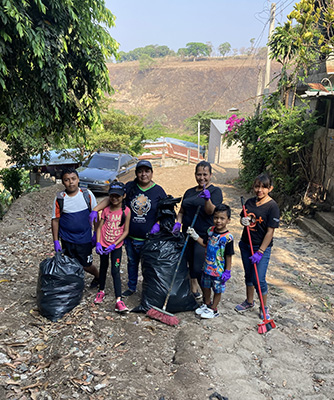

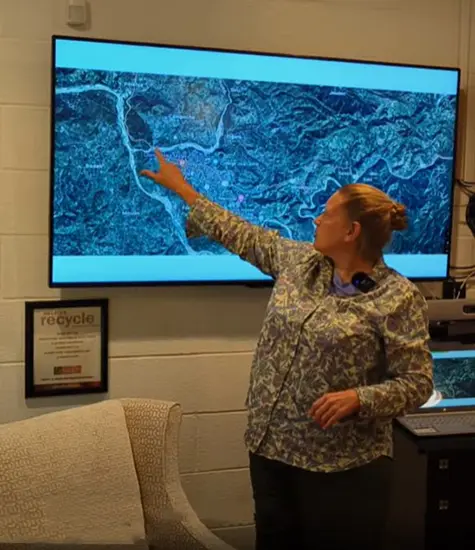
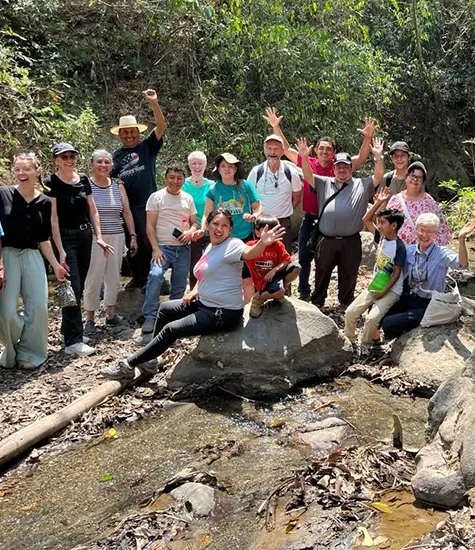
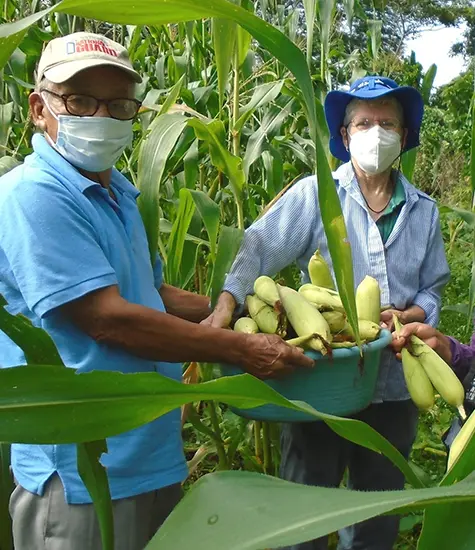




Good job Liz and Bob.
You are both doing such needed work. The trash can is sooooo Bob!
Thank you Mrs. Liz and Mr. Bob,
I am thankful for all you are doing in El salvador which is the country I was born in but yes the problem has gotten better now with Bukele on board but there’s still much to be done one of them should be to start putting out fines to who ever is doing that so that they learn not to do it anymore. Besides poverty let’s be honest El Salvador was forgotten for so long that people had no choice but to do the easiest thing which was to make piles of trash and burn it if it got to big, now they must change their old ways which of course it won’t be easy but we are surely walking now on the right path.
Now we can all report to the city problems like that and they will go check and give fines if there’s a responsible person. So thankful to God and greatful to Bukele for loving El Salvador so much. The changes are wonderful but there’s still a lot to be done and all is understandable after decades of corruption the job won’t be easy!
“In love with El Salvador ”
Poverty or not we must keep the Earth clean a place where we can live.